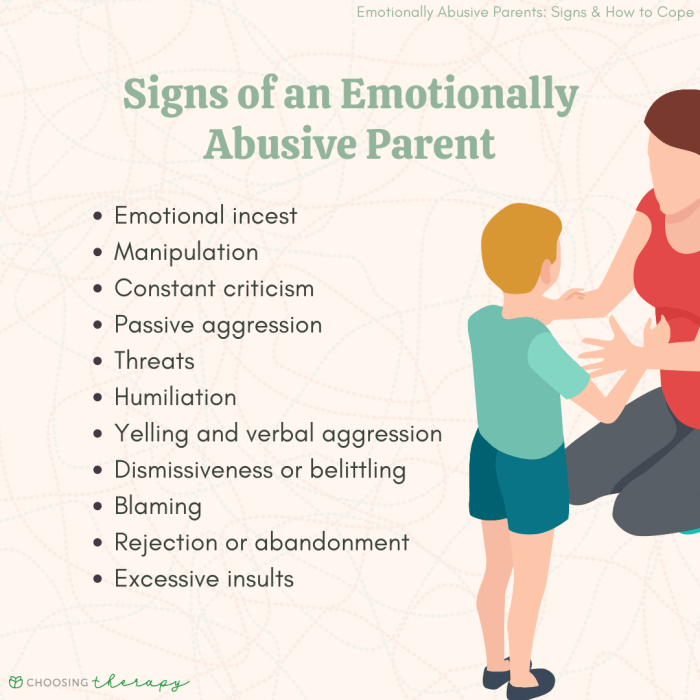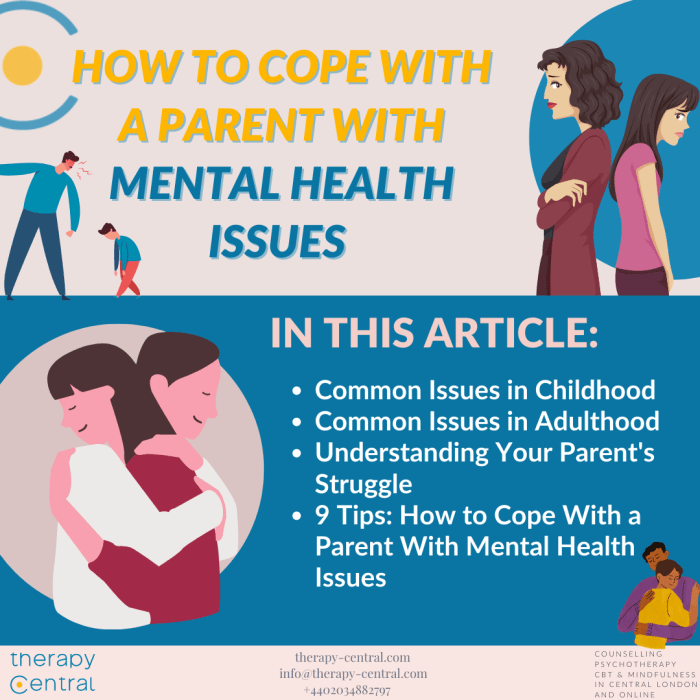Imagine a childhood ripped apart by abandonment, then tossed into the unpredictable world of foster care. This is my story, a rollercoaster ride through trauma, abuse, and the struggle to find my own identity. It’s a raw, unflinching look at the scars left by a broken system and the strength it took to rise above the ashes.
This isn’t just a memoir; it’s a testament to the human spirit’s ability to heal, to find light in the darkest of places.
I’ll take you through the emotional turmoil of being uprooted from my family, the challenges of navigating a system that felt more like a revolving door than a haven, and the heart-wrenching experience of facing abuse at the hands of a foster parent.
I’ll share the journey of coming to terms with the mental illness that fueled this abuse, and how it shaped my understanding of both myself and the world. But this isn’t just a tale of suffering; it’s a story of resilience, of finding strength within myself, and ultimately, discovering my own compelling significance.
The Impact of Trauma on Childhood Development

Childhood trauma, a pervasive and devastating experience, leaves an indelible mark on a child’s development, impacting their emotional, cognitive, and social well-being. The scars of trauma can extend far beyond the initial event, shaping their lives in profound and often unforeseen ways.
The Long-Term Effects of Childhood Trauma on Development
The consequences of childhood trauma can be far-reaching, influencing a child’s emotional, cognitive, and social development. Trauma can disrupt the brain’s development, particularly in areas responsible for regulating emotions, forming attachments, and managing stress. This disruption can lead to a range of long-term challenges, including:
- Emotional Dysregulation:Trauma can lead to difficulties in managing emotions, resulting in heightened anxiety, depression, anger, and emotional outbursts. Children may struggle to regulate their emotions, leading to impulsive behaviors and difficulty forming healthy relationships.
- Cognitive Impairment:Trauma can affect cognitive development, leading to difficulties with attention, concentration, memory, and problem-solving. Children may experience learning difficulties, struggle with academic performance, and have difficulty making decisions.
- Social Challenges:Trauma can disrupt social development, making it difficult for children to build and maintain healthy relationships. They may experience social anxiety, difficulty trusting others, and struggle with communication and interpersonal skills.
The Disruption of Secure Attachments and Healthy Self-Esteem
Childhood trauma can severely disrupt the formation of secure attachments, which are crucial for healthy emotional and social development. Children who experience trauma may develop insecure attachment styles, characterized by anxiety, avoidance, or a combination of both. These insecure attachment styles can lead to difficulties in forming healthy relationships later in life, as they may struggle to trust others, fear intimacy, or have difficulty expressing their needs.Trauma can also damage a child’s self-esteem, leading to feelings of worthlessness, shame, and self-doubt.
Children who experience trauma may internalize the abuse, believing that they are somehow responsible for the abuse or that they are inherently flawed. This can lead to a negative self-image, low self-worth, and difficulty believing in their own abilities.
The Manifestation of Trauma in Later Life
The effects of childhood trauma can manifest in a variety of ways in adulthood, including:
- Anxiety Disorders:Trauma can increase the risk of developing anxiety disorders, such as generalized anxiety disorder, panic disorder, and post-traumatic stress disorder (PTSD). These disorders can manifest as excessive worry, fear, and avoidance behaviors.
- Depression:Childhood trauma is a significant risk factor for depression. Individuals who experience trauma may be more likely to develop depressive symptoms, such as feelings of sadness, hopelessness, and loss of interest in activities they once enjoyed.
- Substance Abuse:Trauma can lead to substance abuse as a coping mechanism. Individuals may turn to drugs or alcohol to numb their emotional pain, escape from their traumatic memories, or self-medicate for anxiety or depression.
- Relationship Difficulties:Trauma can impact an individual’s ability to form and maintain healthy relationships. They may struggle to trust others, have difficulty expressing their emotions, or engage in unhealthy relationship patterns.
Navigating the Challenges of Foster Care

The foster care system is a complex and often challenging environment for children who have experienced trauma and abandonment. Navigating this system can be overwhelming, requiring resilience and adaptability in the face of constant change and uncertainty. This section explores the author’s experiences within the foster care system, highlighting the challenges of adjusting to new environments and caregivers, the emotional toll of separation from biological family, and the potential for further trauma within the system.
The Emotional Toll of Separation from Biological Family
The experience of being separated from biological family is a profound and often traumatic event for children in foster care. This separation can result in feelings of loss, grief, anger, and confusion. The author describes feeling a deep sense of abandonment and longing for their biological family, even as they struggled to understand the circumstances that led to their separation.
The author recounts how they grappled with the complexities of their situation, trying to reconcile their love for their biological family with the reality of their current circumstances.
The Challenges of Adjusting to New Environments and Caregivers
Foster care often involves frequent transitions between different homes and caregivers, which can be highly disruptive and stressful for children. The author recounts the challenges of adapting to new environments, rules, and routines, and the difficulty of building trust with unfamiliar caregivers.
The author shares how they struggled to feel safe and secure in these new settings, often feeling anxious and uncertain about the future.
The Potential for Further Trauma within the Foster Care System
Unfortunately, the foster care system itself can be a source of trauma for some children. The author describes encountering caregivers who were not adequately trained or equipped to meet their needs, and who may have engaged in neglectful or abusive behavior.
“My Compelling Significance” is a raw, unflinching look at the dark side of life, tackling childhood trauma, abandonment, and the brutal realities of abuse. It’s a story that resonates with anyone who’s ever felt lost and broken, a testament to the strength that can bloom even in the harshest of environments.
If you’re looking for a story that shows the power of resilience, check out “Of Dirt and Wildflowers A Memoir on Growing the Courage to Bloom” here , a memoir that explores the journey of finding hope amidst the darkness.
Both books offer powerful insights into the human spirit’s ability to overcome adversity, reminding us that even in the face of unimaginable pain, there’s always the potential for growth and healing.
The author also discusses the potential for exploitation and abuse within the system, highlighting the importance of safeguards and accountability to protect vulnerable children.
My Compelling Significance is a raw and honest look at the struggles of childhood trauma, but sometimes, you just need a break from the heavy stuff. If you’re looking for a little escape, check out this COLOR BY NUMBERS BOOK FOR KIDS AGES 8-12 Over 45+ Large Print Birds Flowers Animals and Pretty Patterns Color by Number Activity Coloring Books (Black Background) for some stress-free coloring fun.
It’s a reminder that even amidst the darkness, there’s always room for a little bit of color and creativity.
Strengths and Limitations of the Foster Care System
Despite the challenges, the foster care system provides a vital lifeline for children who have experienced abuse, neglect, or abandonment. The author recognizes the strengths of the system, including the provision of basic needs, access to education and healthcare, and the potential for stability and support.
However, the author also acknowledges the limitations of the system, including the lack of resources, the high turnover rate of caregivers, and the potential for further trauma.
Coping with Abuse and Mental Illness

Living with an abusive foster parent was a daily battle. The emotional, physical, and psychological scars etched into my soul were a constant reminder of the trauma I endured. The physical abuse was often accompanied by verbal assaults, leaving me feeling worthless and broken.
The psychological impact was perhaps the most devastating, as it chipped away at my self-esteem and confidence, making it incredibly difficult to trust anyone or believe in my own worth.
Understanding the Foster Parent’s Mental Illness
My foster parent’s mental illness was a complex and challenging aspect of my experience. While I knew that their behavior was not entirely their fault, it didn’t make the abuse any less real or painful. Understanding the complexities of mental illness helped me to navigate the situation with more empathy and compassion.
It was a long process, but I eventually came to understand that their actions were a manifestation of their illness, not a reflection of their true character.
The Challenges of Navigating Abuse and Mental Illness
Navigating the complexities of abuse and mental illness was a constant struggle. It was difficult to reconcile the love and care I received from my foster parent with the abuse I endured. The emotional rollercoaster of confusion and anger was incredibly draining, making it difficult to maintain a sense of normalcy.
My self-perception was shattered, and I struggled to trust others or believe in my own worth. The experience left deep-seated wounds that impacted my ability to form healthy relationships and trust others.
Finding Strength and Resilience
It wasn’t easy. The pain of my childhood was like a heavy weight, dragging me down. But I found ways to fight back, ways to reclaim my life and find meaning in the midst of the darkness. This chapter explores the strategies I used to cope with trauma, the role of personal resilience in overcoming adversity, and my journey of healing and self-discovery.
The Power of Therapy
Therapy was my lifeline. It provided a safe space to process my emotions, unpack the layers of trauma, and develop healthy coping mechanisms. Through talk therapy, I learned to understand the impact of my experiences on my psyche, to identify my triggers, and to challenge the negative beliefs that had taken root in my mind.
So, you’re thinking about diving into “My Compelling Significance,” a memoir that’s like a rollercoaster ride through childhood trauma? That’s heavy stuff, man. Sometimes you just need to hit the pause button and chill out, and that’s where the Mindful Owls coloring book comes in.
It’s like a time-out for your mind, with cool owl illustrations and motivational quotes. After a deep dive into that memoir, you might need a little mindful coloring to center yourself, you know?
Therapy helped me to reclaim my narrative, to recognize my own strength, and to build a foundation for a healthier future.
The Support of Others
The power of community is undeniable. Connecting with others who had experienced similar trauma allowed me to feel less alone, to share my story without judgment, and to learn from their resilience. Support groups provided a space for me to connect with others, to build relationships, and to find strength in shared experiences.
These connections helped me to feel less isolated and to realize that I wasn’t alone in my struggle.
Self-Care Practices
Self-care was essential for my healing journey. It involved making choices that prioritized my well-being, both physically and emotionally. This included engaging in activities that brought me joy, like spending time in nature, listening to music, or reading.
My Compelling Significance is a raw, unflinching look at the darkness of childhood trauma. From abandonment to abuse, this memoir pulls no punches, and if you’re looking for a story that’ll stay with you long after you finish it, Download And Listen Here.
It’s a powerful testament to resilience, and a reminder that even in the darkest of times, hope can always find a way to shine through.
I also prioritized my physical health by eating nutritious foods, getting enough sleep, and exercising regularly. These practices helped me to manage stress, to reduce anxiety, and to cultivate a sense of self-compassion.
The Importance of Resilience
Resilience is the ability to bounce back from adversity, to adapt to change, and to find meaning in the face of pain. It’s not about being strong all the time, but about having the capacity to face challenges, to learn from setbacks, and to grow stronger in the process.
For me, resilience was a muscle that I had to build, and it took time and effort. But through therapy, support groups, and self-care practices, I learned to cultivate resilience and to embrace the power of my own inner strength.
The Journey of Healing and Self-Discovery
Healing from trauma is a journey, not a destination. It’s a process of self-discovery, of learning to love and accept myself, and of building a life that is truly my own. It’s about finding meaning in the midst of pain, and about recognizing the strength and resilience that lie within.
My journey has been filled with challenges, but it has also been a journey of growth, of self-compassion, and of rediscovering my own unique light.
Book Review

“My Compelling Significance” is a raw and unflinching memoir that takes readers on a harrowing journey through the author’s tumultuous childhood. From the trauma of abandonment and the horrors of an abusive foster parent to the struggles of mental illness and sexual assault, the book confronts difficult realities with unflinching honesty.
The author’s powerful prose and intimate storytelling style create a visceral experience, allowing readers to connect deeply with the author’s pain and resilience.
The Author’s Writing Style and Storytelling Techniques
The author’s writing style is characterized by its raw honesty and emotional depth. The narrative unfolds in a stream of consciousness, immersing readers in the author’s thoughts and feelings. The use of vivid imagery and sensory details brings the author’s experiences to life, allowing readers to experience the trauma firsthand.
Strengths and Weaknesses
One of the book’s greatest strengths is its unflinching honesty. The author doesn’t shy away from the darkest aspects of her experience, offering a brutally honest portrayal of the realities of trauma and abuse. This raw honesty is what makes the book so powerful and impactful.
However, the book’s relentless focus on trauma can be emotionally draining for some readers. The lack of a clear narrative arc and the repetitive nature of the author’s struggles can make it difficult for some readers to connect with the story on a deeper level.
Impact on the Reader
“My Compelling Significance” is a powerful and thought-provoking memoir that will leave a lasting impact on readers. It offers a unique perspective on the long-term effects of childhood trauma and the challenges of navigating the foster care system. The book’s raw honesty and emotional depth will resonate with anyone who has experienced trauma or knows someone who has.
It serves as a powerful reminder of the strength and resilience of the human spirit.
Comparison to Other Works
“My Compelling Significance” stands out from other memoirs on similar themes by its unflinching honesty and its focus on the complexities of navigating the foster care system. The book’s raw portrayal of the author’s experiences, both positive and negative, offers a unique and valuable perspective on the challenges of overcoming trauma.
It also highlights the importance of finding support and building resilience in the face of adversity.
Outcome Summary
This memoir isn’t just about me; it’s about the shared experiences of countless individuals who have endured similar struggles. It’s a call for understanding, empathy, and a commitment to creating a better world for those who are vulnerable and need a helping hand.
It’s a reminder that even in the face of unimaginable darkness, hope can blossom, and the human spirit can triumph. My story is a testament to that, and I hope it inspires others to find their own compelling significance, to rise above their challenges, and to embrace the power of their own resilience.
Essential Questionnaire
What inspired you to write this memoir?
I felt compelled to share my story because I know there are so many others who have experienced similar struggles. I want to offer hope and support to those who are going through their own journeys of healing, and to shed light on the often-hidden realities of childhood trauma and abuse.
What do you hope readers will take away from your book?
I hope readers will gain a deeper understanding of the impact of trauma and abuse, and the importance of seeking help and support. I also hope my story inspires others to find their own strength and resilience, and to believe in their own ability to overcome adversity.
What advice would you give to someone who is currently going through a similar experience?
My advice would be to reach out for help, whether it’s a therapist, a support group, or a trusted friend or family member. You don’t have to go through this alone. There are people who care and want to help you heal.

